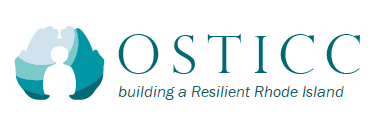Treatment & Support Resources

RI Healthy Transitions
RI Healthy Transitions is for youth and young adults, ages 16-25 who are experiencing problems with moods, thoughts, and behaviors. Youth and young adults will receive help with housing, employment, education, care and support for an average of two years, medication treatment (if mutually decided by participant and doctor) and interviews every six months to monitor progress.
Participants will be connected to their service providers but will also connect to other participants in the program. The program is held in an open and transparent environment and participants will create their own personalized treatment plan with the help of the team.
Resources for Individuals in Crisis

Free 24 hour Confidential Drug and Alcohol Helpline
1-866-ALC-DRUG

The Providence Center
Providence
Adult Services:
530 North Main Street, Providence, RI 02904
401-528-0110; emergency number: 401-274-7111

Naloxone and Overdose Prevention Education Program of Rhode Island
The Naloxone and Overdose Prevention Education Program of Rhode Island (NOPE-RI) is a program of the RI Disaster Medical Assistance Team and Medical Reserve Corps (RI DMAT/MRC). We recruit, train, and deploy volunteers to educate Rhode Islanders about addiction, overdose prevention, and the use of naloxone (Narcan).
We collaborate with strategic partners across the state in order to address these issues, including HEALTH, BHDDH, DOC (Department of Corrections), State Police, municipal law enforcement, URI, Lifespan, and other not-for-profit organizations. With a focus on public safety and healthcare professionals, we create and compile training curricula and resource material that helps agencies, organizations, and individuals implement simple, cost-effective, evidence-based strategies to fight the epidemic of opioid abuse and overdose.
Our programming includes overdose prevention, recognition, and response training, specifically targeted towards law enforcement and public safety professionals, primary care providers, behavioral healthcare providers, corrections, and others.

Naloxone Training

RI State's 9-1-1 Good Samaritan/Overdose Law
Under this law:
- Bystanders are allowed to carry and administer naloxone if they suspect an overdose.
- No one who tries to help in an overdose can be prosecuted for having a small amount of medication or drugs.
- The overdose victim is also protected.
- The law, however, does not protect you or the overdose victim from other crimes or warrants.
Family Support Services
Resources for Youth & Young Adults

RI Healthy Transitions
RI Healthy Transitions is for youth and young adults, ages 16-25 who are experiencing problems with moods, thoughts, and behaviors. Youth and young adults will receive help with housing, employment, education, care and support for an average of two years, medication treatment (if mutually decided by participant and doctor) and interviews every six months to monitor progress.
Participants will be connected to their service providers but will also connect to other participants in the program. The program is held in an open and transparent environment and participants will create their own personalized treatment plan with the help of the team.

The Providence Center
Providence
Adult Services:
530 North Main Street, Providence, RI 02904
401-528-0110; emergency number: 401-274-7111
Housing Resources
Affordable Housing
Affordable housing is available across the state through public, private and non-profit providers. Housing is affordable when an individual or family pays 30% of their income for housing. There are several programs available across the state to assist individuals (with lower incomes) pay for housing through a rental subsidy/voucher.
Training Resources

Aquifer.org

Naloxone and Overdose Prevention Education Program of Rhode Island
The Naloxone and Overdose Prevention Education Program of Rhode Island (NOPE-RI) is a program of the RI Disaster Medical Assistance Team and Medical Reserve Corps (RI DMAT/MRC). We recruit, train, and deploy volunteers to educate Rhode Islanders about addiction, overdose prevention, and the use of naloxone (Narcan).
We collaborate with strategic partners across the state in order to address these issues, including HEALTH, BHDDH, DOC (Department of Corrections), State Police, municipal law enforcement, URI, Lifespan, and other not-for-profit organizations. With a focus on public safety and healthcare professionals, we create and compile training curricula and resource material that helps agencies, organizations, and individuals implement simple, cost-effective, evidence-based strategies to fight the epidemic of opioid abuse and overdose.
Our programming includes overdose prevention, recognition, and response training, specifically targeted towards law enforcement and public safety professionals, primary care providers, behavioral healthcare providers, corrections, and others.





































